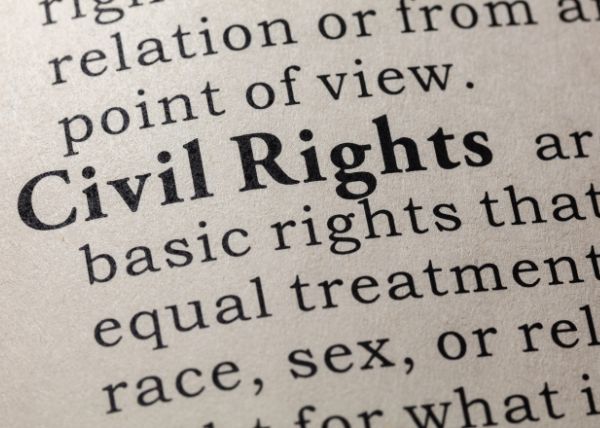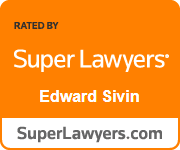New York Civil Rights & Criminal Defense Lawyers
Discrimination Lawyer
At Sivin, Miller & Roche LLP, our discrimination attorneys fight relentlessly to protect your civil rights in New York City and beyond. With decades of experience challenging workplace discrimination, housing bias, and institutional prejudice, we’ve secured millions in settlements and verdicts for our clients. Whether you’ve faced discrimination based on race, gender, age, disability, religion, or sexual orientation, our dedicated legal team combines deep knowledge of state and federal law with a proven track record of holding employers and institutions accountable.

Discrimination By Law Enforcement
Discrimination by law enforcement undermines the principles of justice and equality, creating lasting harm for individuals and communities. At Sivin, Miller & Roche LLP, we are dedicated to holding law enforcement accountable for discriminatory practices. Below, we outline key aspects of law enforcement discrimination and how our firm can help.
What Is Law Enforcement Discrimination?
Law enforcement discrimination occurs when officers or departments engage in biased behavior against individuals based on race, ethnicity, religion, gender, sexual orientation, or other protected characteristics. This includes practices such as:
- Racial profiling
- Unequal treatment during investigations
- Discriminatory arrests or citations
- Excessive use of force targeting specific groups
- Such actions not only violate moral standards but also breach federal and state civil rights laws.
Your Legal Protections Against Discrimination
Victims of law enforcement discrimination are protected under several laws, including:
- The Civil Rights Act: Prohibits discrimination by government entities, including law enforcement agencies.
- New York State Human Rights Law: Provides additional protections against bias and unequal treatment.
At Sivin, Miller & Roche LLP, we help clients navigate these complex legal frameworks to ensure their rights are upheld.
How We Fight for Justice
Our legal team conducts thorough investigations to build strong cases against discriminatory law enforcement practices. We gather critical evidence, consult with experts, and pursue claims against police departments and individual officers. Our goal is to secure justice for our clients, whether through financial compensation, policy reforms, or other meaningful outcomes.
If you’ve experienced discrimination by law enforcement in New York, you don’t have to face it alone. Sivin, Miller & Roche LLP is here to stand by your side. Contact us today to discuss your case and explore your legal options.
Other Forms of Discrimination That Violates Civil Rights
Discrimination comes in many forms and can occur in various aspects of life, often targeting individuals based on race, gender, religion, disability, age, sexual orientation, or other protected characteristics. These acts not only harm individuals but also violate their civil rights. Below are some common forms of discrimination our firm handles:
1. Workplace Discrimination
Workplace discrimination involves unfair treatment of employees or job applicants due to their protected characteristics. This can include:
- Wrongful termination or demotion
- Unequal pay for equal work
- Harassment or hostile work environments
- Failure to hire or promote qualified candidates
Such actions are prohibited under laws like Title VII of the Civil Rights Act, the Americans with Disabilities Act (ADA), and the New York State Human Rights Law.
2. Housing Discrimination
Discrimination in housing occurs when landlords, real estate agents, or lenders deny housing opportunities or impose unfair terms based on race, religion, family status, disability, or other protected traits. The Fair Housing Act protects individuals from such practices, ensuring equal access to housing opportunities.
3. Educational Discrimination
In schools and universities, discrimination can manifest as unequal access to resources, unfair disciplinary actions, or harassment by peers or staff. Federal laws like Title IX aim to eliminate bias in educational settings and protect students’ rights.
4. Discrimination in Public Accommodations
Public accommodations—such as restaurants, hotels, stores, and entertainment venues—are prohibited from denying service or treating individuals unfairly based on protected characteristics. The Civil Rights Act and state laws ensure that everyone can access public spaces without fear of bias or exclusion.
5. Discrimination in Voting
Voting discrimination undermines democracy and can include practices like voter suppression, gerrymandering, or harassment at polling places, often targeting specific racial or ethnic groups. Laws like the Voting Rights Act of 1965 protect individuals’ rights to participate fully in the electoral process.
At Sivin, Miller & Roche LLP, we understand the profound impact discrimination has on individuals and communities. Our dedicated attorneys are committed to holding wrongdoers accountable and helping clients secure justice. If you believe your civil rights have been violated, contact us today to discuss your case.
What To Do If You Are a Victim of Discrimination
Experiencing discrimination—whether by law enforcement or in other aspects of life—can be overwhelming and dehumanizing. However, you have rights and legal recourse to fight back against injustice. If you believe you’ve been a victim of discrimination, here are steps you can take to protect yourself and build a strong case:
- Document the Incident: Preserve as much evidence as possible related to the discriminatory act. This is especially crucial in cases of law enforcement discrimination, where proving bias or misconduct can be challenging. Key actions include:
- Writing a detailed account of what happened, including dates, times, locations, and any statements made by those involved.
- Keeping copies of tickets, citations, or arrest records in cases of police misconduct.
- Gathering photos, videos, or witness statements that support your claim.
- Know Your Rights: Understanding your civil rights can help you identify when they’ve been violated. Key protections include:
- For law enforcement discrimination: Laws like the Civil Rights Act and Section 1983 of the U.S. Code protect against police misconduct, racial profiling, and excessive force.
- For other forms of discrimination: Laws such as the Americans with Disabilities Act, Title VII of the Civil Rights Act, and the Fair Housing Act provide protection in the workplace, housing, education, and public accommodations.
- File a Complaint with the Relevant Authorities: If the discrimination involves law enforcement, you may be able to file a complaint with:
- The police department’s internal affairs division
- The Civilian Complaint Review Board (CCRB) in New York City
- Federal or state civil rights agencies, such as the U.S. Department of Justice or the New York State Division of Human Rights
- For workplace or housing discrimination, agencies like the Equal Employment Opportunity Commission (EEOC) or the Department of Housing and Urban Development (HUD) may handle your complaint.
- Consult an Experienced Civil Rights Lawyer: Navigating the legal system can be complex, especially in cases involving powerful institutions like law enforcement agencies. An experienced civil rights lawyer can:
- Evaluate your case to determine if your rights were violated.
- Gather additional evidence and work with experts to build a strong legal argument.
- Pursue legal action on your behalf, whether through lawsuits, mediation, or negotiations.
- Take Legal Action to Seek Justice: If your case involves law enforcement discrimination, legal action may include filing a civil rights lawsuit under Section 1983 or other applicable laws. Victims of workplace, housing, or public accommodations discrimination may pursue remedies like compensation, job reinstatement, or policy changes.
- Take Care of Yourself: Experiencing discrimination can be emotionally and mentally taxing. Seek support from trusted friends, family, or professional counselors. Know that fighting back isn’t just about your case—it’s about protecting the rights of others and fostering change.
How We Can Help with Your Discrimination Case
At Sivin, Miller & Roche LLP, we are committed to standing up for individuals whose civil rights have been violated. Whether you’ve been a victim of discrimination by law enforcement or in other areas of life, our experienced attorneys are here to provide the legal support and advocacy you need. Here’s how we can help:
Comprehensive Case Evaluation
Our team will listen to your story, review the details of your situation, and evaluate whether your rights have been violated under federal, state, or local laws. We will explain your legal options and outline the steps you can take to pursue justice.
Thorough Investigation
We conduct a detailed investigation to build the strongest possible case. This includes:
- Gathering evidence such as police reports, video footage, or employment records.
- Interviewing witnesses who can support your claims.
- Consulting with experts to analyze patterns of misconduct or systemic discrimination.
Expert Representation in Law Enforcement Discrimination Cases
If you’ve been targeted by discriminatory practices such as racial profiling, excessive force, or wrongful arrests, we will fight to hold law enforcement accountable. Our attorneys are experienced in bringing civil rights lawsuits under Section 1983 and other statutes to ensure justice for victims of police misconduct.
Fighting for Victims of Discrimination in All Areas
Beyond law enforcement discrimination, we represent clients who have experienced bias in:
- The Workplace: We handle claims involving wrongful termination, harassment, and unequal treatment.
- Housing: We pursue cases under the Fair Housing Act for individuals denied housing opportunities.
- Education and Public Accommodations: We seek justice for students and individuals who face discrimination in schools, businesses, or public spaces.
Pursuing Justice and Compensation
Our attorneys are skilled negotiators and trial lawyers who will fight for the best possible outcome in your case. This may include:
- Financial compensation for damages such as emotional distress, lost wages, or medical expenses.
- Injunctive relief to prevent further discrimination or require policy changes.
- Holding wrongdoers accountable and setting precedents to protect others.
Compassionate Guidance Every Step of the Way
We understand how difficult it can be to face discrimination, especially when going up against powerful entities like employers or law enforcement agencies. Our attorneys are here to provide not only legal expertise but also the support and guidance you need to navigate this challenging time.
Contact Sivin, Miller & Roche LLP Today
If you’ve been a victim of discrimination—whether by law enforcement, in the workplace, or elsewhere—you don’t have to face it alone. At Sivin, Miller & Roche LLP, we are dedicated to protecting your civil rights and fighting for justice on your behalf. Contact us today for a confidential consultation to discuss your case and learn how we can help you hold wrongdoers accountable and secure the outcome you deserve.
Questions? We Can Help Get You Answers
1. What is discrimination under the law?
Discrimination occurs when someone is treated unfairly or unequally based on characteristics such as race, gender, religion, age, disability, sexual orientation, or national origin. Federal and state laws, including the Civil Rights Act and the New York State Human Rights Law, protect individuals from discrimination in various settings, such as law enforcement, employment, housing, and public accommodations.
2. How do I know if I’ve been a victim of law enforcement discrimination?
You may be a victim of law enforcement discrimination if you were:
- Stopped or searched without reasonable cause based on your race or ethnicity.
- Subjected to excessive force without justification.
- Treated unfairly or differently due to your religion, gender, or other protected traits.
If you believe you’ve been targeted unfairly, consulting with an experienced civil rights attorney is essential to evaluate your case.
3. What evidence do I need for a discrimination case?
Evidence is critical in proving discrimination. Helpful evidence may include:
- Documentation of the incident (e.g., police reports, employment records, or emails).
- Photos or videos of the discriminatory act.
- Witness statements supporting your claim.
- Records showing a pattern of similar behavior by the offender.
Our attorneys will help you gather and organize this evidence to strengthen your case.
4. Can I sue law enforcement for discrimination or misconduct?
Yes, you can file a lawsuit against law enforcement officers or agencies if your civil rights were violated. Under Section 1983 of the U.S. Code, individuals can seek legal remedies for violations such as racial profiling, wrongful arrests, or excessive use of force.
5. What compensation can I receive in a discrimination case?
Compensation in a discrimination case may include:
- Damages for emotional distress, pain, and suffering.
- Compensation for financial losses, such as lost wages or medical expenses.
- Punitive damages to hold the responsible party accountable.
Our attorneys will fight to maximize the compensation you are entitled to.
6. How long do I have to file a discrimination claim?
The statute of limitations for discrimination claims varies depending on the type of discrimination and the laws under which you’re filing. Consult with a civil rights lawyer today to ensure you meet deadlines.
7. Do I need an attorney to file a discrimination claim?
While you can file a claim on your own, having an experienced discrimination lawyer significantly improves your chances of success. An attorney can navigate complex legal processes, gather evidence, and advocate on your behalf to achieve the best possible outcome.
8. How much does it cost to hire Sivin, Miller & Roche LLP for my discrimination case?
We offer free consultations to evaluate your case and discuss your legal options. Many civil rights cases are handled on a contingency fee basis, meaning you don’t pay unless we win your case.
Tell Us About Your Case
Fields marked with an * are required
"*" indicates required fields



